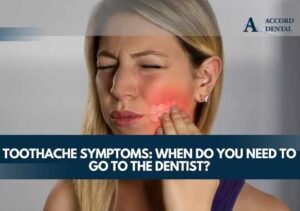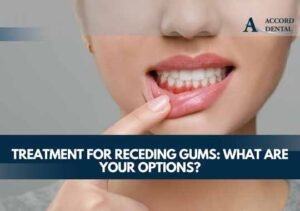Cavities, also known as dental caries or tooth decay, are one of the most common health issues worldwide. The discomfort, pain, and potential for long-term damage can impact our daily lives. Protecting yourself from cavities isn’t just about brushing twice a day; it’s about creating a holistic oral hygiene routine and making lifestyle choices that support your dental health. In this article, we’ll explore essential steps and habits for cavity prevention to keep your teeth healthy and strong.
Understanding Cavities: What Causes Them?
Cavities form when plaque—a sticky layer of bacteria—builds up on your teeth and produces acids that erode enamel. Several factors contribute to this, including:
- Sugary foods and drinks: Sugars feed harmful bacteria in your mouth.
- Poor oral hygiene: Inadequate brushing and flossing allow plaque buildup.
- Lack of fluoride: Fluoride helps strengthen enamel and prevent decay.
- Dry mouth: Saliva neutralizes acids, so less saliva can lead to a higher risk of cavities.
- Certain medical conditions and medications: Some health issues and medications can reduce saliva flow or alter the bacteria in your mouth.
Understanding these causes can help you develop an effective plan to avoid cavities and protect your oral health.
Essential Tips to Protect Yourself from Cavities
1. Brush and Floss Regularly
Maintaining a consistent oral hygiene routine is essential for cavity prevention. Brushing and flossing help remove food particles and plaque, keeping your teeth and gums healthy.
Brushing Techniques for Effective Cleaning
- Use fluoride toothpaste: Fluoride strengthens enamel and fights off acid-producing bacteria.
- Brush twice a day: Morning and night brushing are critical, especially before bed when bacteria can multiply overnight.
- Brush for two minutes: Make sure to cover all surfaces of your teeth, focusing on the back teeth, where cavities are most likely to form.
- Choose the right toothbrush: Use a soft-bristled brush and replace it every three to four months or when the bristles are frayed.
Why Flossing is Important
Flossing reaches areas that your toothbrush can’t, particularly between your teeth. Flossing daily helps prevent plaque buildup and reduces your risk of gum disease, another factor that can contribute to cavities.
2. Watch Your Diet: Limit Sugary and Acidic Foods
Diet plays a significant role in dental health. Sugary and acidic foods can weaken enamel, making your teeth more susceptible to cavities.
Foods to Avoid for Cavity Prevention
- Sugary snacks and drinks: Candy, soda, and even certain fruit juices can feed cavity-causing bacteria.
- Refined carbohydrates: Foods like white bread and crackers quickly turn into sugars in the mouth, promoting plaque.
- Acidic foods and beverages: Citrus fruits, tomatoes, and soda are acidic and can wear down enamel over time.
Healthy Foods That Support Oral Health
- Fiber-rich fruits and vegetables: Apples, carrots, and leafy greens help increase saliva production, neutralizing acids.
- Calcium-rich foods: Dairy products like cheese and yogurt are high in calcium and phosphorus, minerals that support strong enamel.
- Water: Drinking water throughout the day, especially after meals, helps wash away food particles and bacteria.
3. Regular Dental Checkups and Cleanings
Seeing your dentist every six months is essential for maintaining good oral health. Professional cleanings remove plaque and tartar that regular brushing and flossing may miss.
What to Expect During Dental Visits
- Cleanings: A dental hygienist will clean your teeth and may polish them to remove surface stains.
- Exams: The dentist will check for cavities, gum disease, and other oral issues.
- X-rays: Periodic X-rays help detect cavities and other problems not visible to the eye.
Early detection of cavities can save you from more extensive dental work down the road.
4. Use Fluoride Products
Fluoride is a natural mineral that can help prevent cavities by strengthening your enamel and making it more resistant to acid attacks.
How to Incorporate Fluoride in Your Routine
- Use fluoride toothpaste: This is one of the easiest ways to get a daily dose of fluoride.
- Consider fluoride mouth rinses: These rinses can provide added protection, particularly for people with a high risk of cavities.
- Ask your dentist about fluoride treatments: Some dentists offer fluoride applications for additional protection.
Fluoride works best when consistently applied over time, so it’s worth making it a staple in your oral hygiene routine.
5. Avoid Frequent Snacking and Sipping
Every time you eat or drink, especially sugary or acidic items, bacteria in your mouth produce acids that attack your enamel. Frequent snacking can prevent your mouth from neutralizing acids effectively.
Tips for Reducing Snacking
- Opt for meals instead of snacks: Try to eat filling meals to avoid snacking throughout the day.
- Choose healthier snacks: When you do snack, choose options like raw vegetables, cheese, or nuts that don’t harm your teeth.
- Drink water after snacking: Water helps rinse away particles and can minimize acid exposure.
6. Protect Your Teeth During Physical Activities
If you participate in sports or other physical activities, protect your teeth by wearing a mouthguard. This simple device can prevent tooth injuries that could expose your teeth to decay-causing bacteria.
Choosing the Right Mouthguard
- Custom-fitted mouthguards: Custom options provided by dentists offer the best fit and protection.
- Boil-and-bite options: These are available at most sports stores and offer a semi-custom fit.
Taking this precautionary step can prevent damage and reduce your need for emergency dental care.
7. Avoid Tobacco Products
Tobacco use can increase your risk of gum disease and cavities, as well as lead to other serious health issues. Both smoking and chewing tobacco reduce saliva production, dry out the mouth, and make it easier for bacteria to build up.
Benefits of Quitting Tobacco for Oral Health
- Reduces bacteria: Quitting can help restore a healthier balance of bacteria in your mouth.
- Improves saliva flow: This helps your mouth naturally protect against acid attacks and bacteria buildup.
- Reduces risk of gum disease and oral cancer: Both of which can complicate your dental health.
8. Consider Dental Sealants
For added protection, ask your dentist about dental sealants. These thin, protective coatings are applied to the chewing surfaces of the back teeth (where cavities are most common) and can last several years.
How Sealants Work
Sealants form a barrier that keeps food and bacteria out of hard-to-reach grooves in your molars. This preventive measure is often recommended for children but can benefit adults as well, especially if they have deep grooves on their back teeth.
9. Manage Dry Mouth
A dry mouth can accelerate tooth decay since saliva helps wash away food particles and neutralizes acids produced by bacteria.
Ways to Increase Saliva Production
- Drink plenty of water: Staying hydrated helps maintain adequate saliva levels.
- Chew sugar-free gum: This can stimulate saliva production, especially after meals.
- Avoid alcohol and caffeine: Both can contribute to dry mouth, so limit your intake.
If dry mouth persists, consider consulting a healthcare provider, as certain medications or health conditions may be causing it.
10. Educate Yourself and Your Family About Cavity Prevention
Cavity prevention isn’t just for children—adults of all ages should prioritize dental health. Share these tips with family members, especially young children, to build lifelong healthy habits.
Ways to Foster Good Dental Habits at Home
- Make brushing fun: Use flavored toothpaste for kids or play a song while brushing.
- Use a reward system: Encourage children to brush and floss daily by rewarding their consistency.
- Model good habits: Children are more likely to follow your example, so brush and floss with them.
Conclusion: Small Changes Lead to Long-Term Benefits
Learning how to protect yourself from cavities starts with adopting a balanced approach to oral health that includes regular brushing, dietary awareness, professional care, and healthy lifestyle choices. By following these simple yet effective steps, you can reduce your risk of cavities, maintain a healthy smile, and enjoy greater overall well-being.
For personalized advice and regular checkups, consider visiting in North Grafton , MA who can provide you with tailored care to keep your teeth healthy and cavity-free. Taking these preventive steps now can save you from more extensive dental work in the future and ensure a bright, strong smile for years to come.





